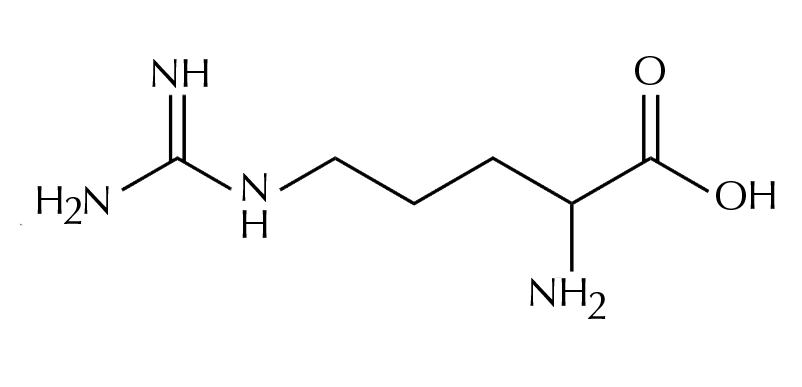What Is Arginine?
Arginine is an amino acid that is used in cosmetics and skincare products that are used to help protect the skin from free radicals, increase the skin’s visible hydration levels, and potentially support collagen production.
In 1886, arginine was first isolated from lupin and pumpkin seedlings by the German chemist Ernst Schulze. It is an alpha-amino acid that is used in the biosynthesis of proteins. In addition to building protein, arginine releases nitric oxide in the blood. Nitric oxide dilates blood vessels in the bloodstream, which may help certain circulatory conditions. Arginine also plays an important role in cell division, wound healing, immune function, the release of hormones, and the production of growth hormone.
Arginine can be found in animal products such as meat, dairy, and eggs, as well as several plant sources including grains, beans, and nuts. Arginine is also available as an oral supplement. Most healthy people do not need to supplement with arginine because it is a component of all protein-containing foods and can also be synthesized by the body.

Arginine
the good:Arginine is thought to help protect the skin from free radicals, help give the skin the appearance of hydration, and may support collagen production.
the not so good:The maximum concentration that arginine should be used in is 18%, be mindful that some products will contain varying concentrations of arginine.
Who is it for?All skin types except those that have an identified allergy to it.
Synergetic ingredients:Works well with most ingredients.
Keep an eye on:Make sure to check that your products contain an effective concentration of arginine.
What Are The Benefits of Arginine?
In cosmetics and skincare products, arginine may help to protect the skin from free radicals, improve the appearance of hydration, and support collagen production.
Antioxidant
Arginine has been shown to have antioxidant activity. Antioxidants work by neutralizing free radicals, the unstable molecules that contribute to the formation of premature wrinkles and fine lines on the skin. Free radicals damage important cellular components, such as the cell membrane, DNA, and cellular proteins like collagen. Damaged collagen is a major factor that contributes to the appearance of aged skin. Therefore, by using topical antioxidants like arginine, the skin may potentially benefit and be better protected from free radicals.
Hydration
Another function of arginine in skincare products is to increase skin hydration by acting as a humectant. A humectant acts by pulling water into the skin from the environment and trapping it in the skin. Studies also suggest that arginine may be involved in the synthesis of components of the skin’s Natural Moisturizing Factor (NMF), such as ceramides, cholesterol, urea, and glycosaminoglycans. Together with the naturally-occurring lipids in the skin, NMF components work to keep the skin’s surface intact, supple, and hydrated.
One study evaluated the effects of topical 2.5% arginine hydrochloride ointment on transepidermal water loss or water loss from the surface layers of the skin. The results of this study indicated that topical arginine increased urea content and improved skin hydration. It is important to remember that one study doesn’t indicate a causational link but this is an interesting potential benefit of arginine.
Anti-aging
Lastly, arginine is often used in anti-aging skincare products because of its potential ability to support collagen production. Studies have suggested that when arginine is metabolized to urea and ornithine by the enzyme arginase-1, L-proline is generated. L-proline is an amino acid that is a substrate for collagen synthesis. Collagen improves skin firmness and decreases signs of aging, so this potential property of arginine may help support skin health and anti-aging. In addition to these anti-aging effects, the potential ability of arginine to support collagen production may also help to speed wound healing.
Is Arginine Safe?
The safety of arginine and the other alpha-amino acids has been assessed by the Cosmetic Ingredient Review (CIR) Expert Panel, a group responsible for evaluating the safety of skincare and cosmetic ingredients. Its maximum concentration for use in a formulation is 18%. Due to the normal presence of arginine in the body and its use as a direct food additive approved by the US Food and Drug Administration, the Expert Panel focused its review on dermal irritation and sensitization data. Dermal data on products containing arginine indicated that this ingredient is not a dermal irritant or sensitizer. Thus, the Expert Panel concluded that arginine and the other alpha-amino acids were safe as used in cosmetics and personal care products.







